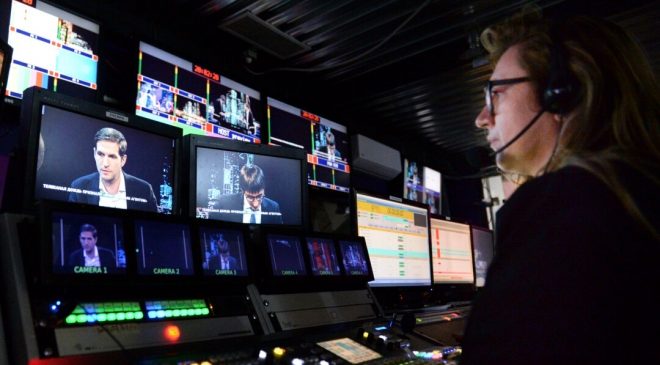
In a concerning move to silence critical voices, Russian authorities have recently targeted TV Rain, a prominent independent online broadcaster, branding it as “undesirable.” Accusations of spreading false information about Russia’s war on Ukraine, discrediting the military and government, and citing other banned outlets paved the way for the ban.
Russia’s “undesirables” law, which came into effect in 2015, grants the prosecutor general the power to prohibit any foreign organization deemed to undermine the country’s security, defense, or constitutional order. Surprisingly, TV Rain, like others under the “undesirable” label, is not foreign. Instead, its team of Russian journalists has been operating from abroad since the spring of 2022, when draconian war-censorship legislation made any criticism of the war in Ukraine a punishable offense.
Tikhon Dzyadko, Chief Editor of TV Rain, revealed that the “undesirable” designation serves as a means of intimidation, discouraging experts from providing comments and hindering Russia-based supporters from sharing content and funding through private donations. It’s evident that the ban’s core objective is to suppress independent reporting.
The Russian government has been systematically targeting critical voices, particularly in the media landscape. TV Rain, which boasted an impressive 13 million Russia-based viewers on YouTube last month, now joins other prominent Russia-focused independent media outlets, including Meduza, IStories, The Insider, The Project, and Novaya Gazeta Europe, that have been unjustly designated as “undesirable” by the Kremlin.
The designation as “foreign agents” has been employed by the government to smear these outlets as traitors and justify website blockades. Such repressive measures have forced entire media teams to flee Russia. Yet, their commitment to truth and reporting has persisted, leading to their ultimate ban, creating a chilling effect where any collaboration or even sharing and commenting on their publications becomes perilous.
Disturbingly, court data reveals that between 2022 and 2023, at least five individuals have already been convicted for reposting content from “undesirable” media outlets, while two more cases await resolution. As Russia’s independent media landscape faces increasing scrutiny and oppression, concerns rise over the government’s determination to curtail freedom of the press and obstruct access to unbiased reporting on crucial issues like war crimes in Ukraine and domestic repression and corruption. The fate of TV Rain and its journalistic peers represents a stark reminder of the ever-shrinking space for independent journalism within the country.
